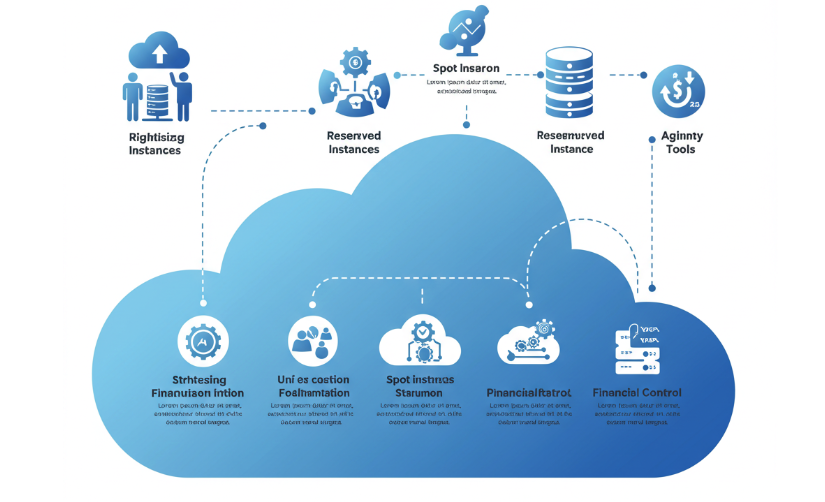Cloud Cost Optimization & Management: Strategies for 2025
1. Implement FinOps for Cost Visibility
Financial Operations (FinOps) is a framework that brings together finance, operations, and engineering teams to ensure cloud spending aligns with business goals. By leveraging real-time cost tracking, businesses can optimize their budgets and eliminate wasteful expenditures.
2. Right-Sizing Resources
Many organizations overprovision cloud resources, leading to unnecessary expenses. Conducting regular audits and analyzing resource utilization can help right-size instances, storage, and computing power to match actual needs.
3. Use Reserved and Spot Instances
Cloud providers offer cost-saving options such as reserved instances (long-term commitments for lower rates) and spot instances (unused capacity at discounted prices). Leveraging these options can significantly reduce cloud expenses while maintaining performance.
4. Automate Scaling and Workload Management
Automated scaling ensures that cloud resources dynamically adjust based on demand. Implementing autoscaling policies prevents over-provisioning while maintaining application availability and performance.
5. Optimize Storage and Data Transfer Costs
Data storage and transfers can contribute significantly to cloud expenses. Businesses should use tiered storage solutions, data compression techniques, and strategically place workloads to minimize egress fees.
6. Leverage Cost Management Tools
Cloud providers offer cost management tools such as AWS Cost Explorer, Azure Cost Management, and Google Cloud Billing. These tools provide insights into usage patterns, budget forecasts, and optimization recommendations.
7. Establish Governance and Budget Controls
Defining clear cost policies and setting budget alerts prevent overspending. Implementing governance frameworks ensures accountability and adherence to cost management best practices.
Cloud computing offers businesses flexibility and scalability, but without proper management, costs can spiral out of control. As organizations increasingly rely on cloud services, optimizing cloud expenses becomes a priority. Here are the top strategies for cloud cost optimization and management in 2025.


